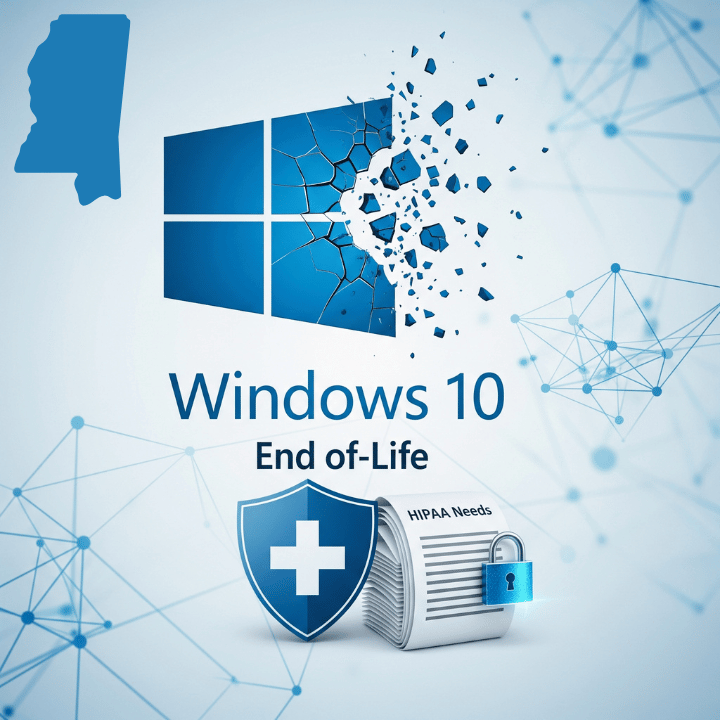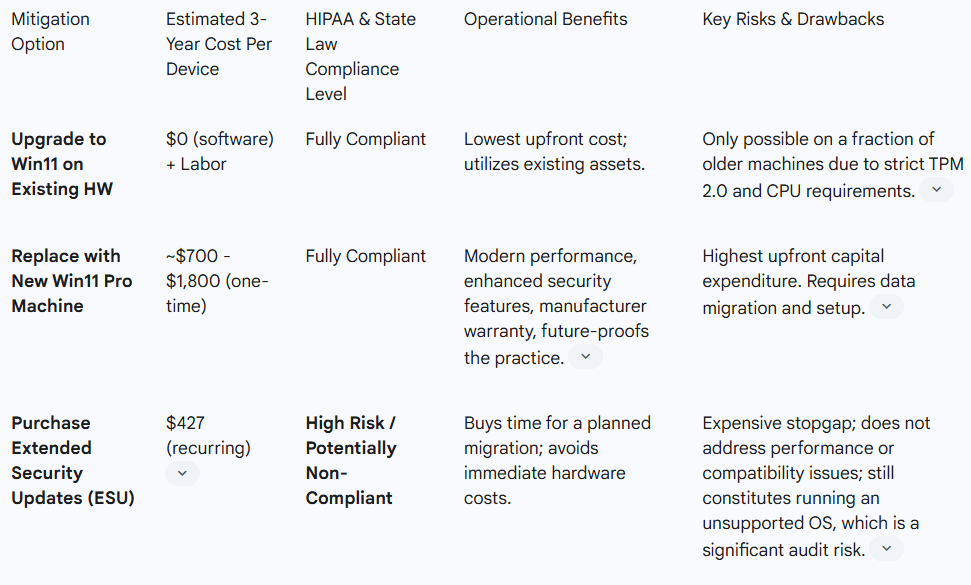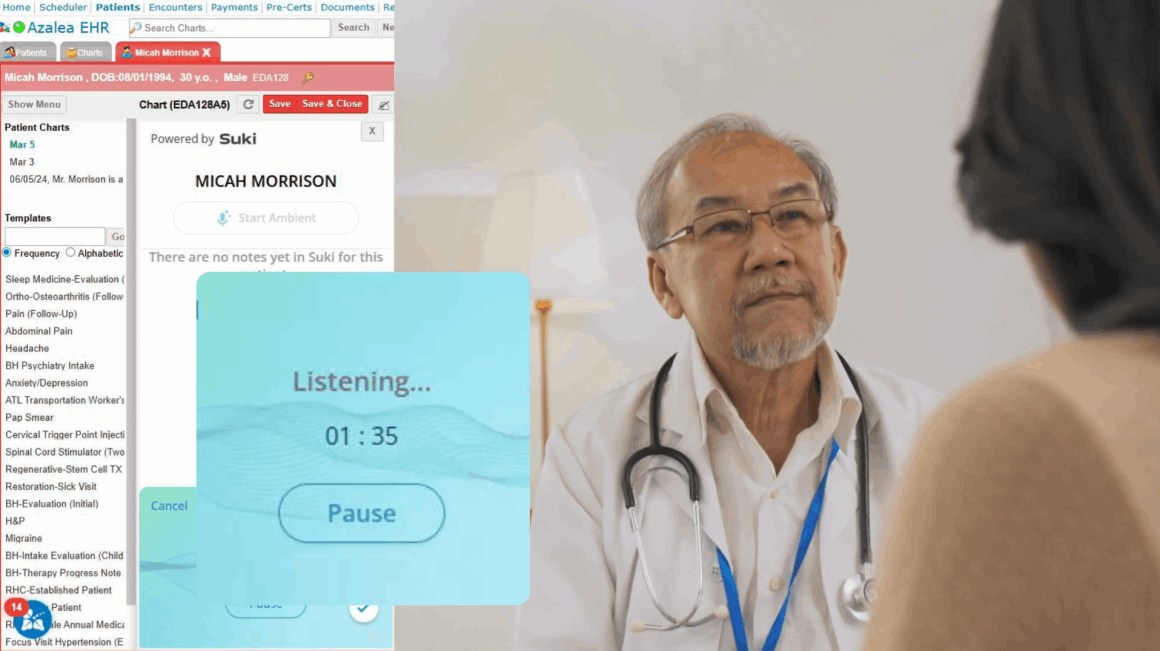Oasis Medical Solutions Article
August 6, 2025
The 2025 Compliance Mandate
A Mississippi Practice's Guide to Windows 10 End-of-Life, HIPAA, and State Law

For independent healthcare practices across Mississippi, from the Gulf Coast to the Delta, the priority is always the health and well-being of your patients. However, a critical technological deadline is approaching that requires your immediate attention. On October 14, 2025, Microsoft will officially end support for Windows 10, the operating system that powers countless computers in clinics throughout the Magnolia State.
This is not just an IT issue for large hospitals in Jackson. For a small or rural practice, this event has profound consequences for your cybersecurity, your ability to operate, and your legal standing under both federal HIPAA regulations and Mississippi state law. This guide is written specifically for you—the practice owners, office managers, and dedicated staff of Mississippi—to provide a clear, actionable plan to protect your patients, your business, and your peace of mind.





